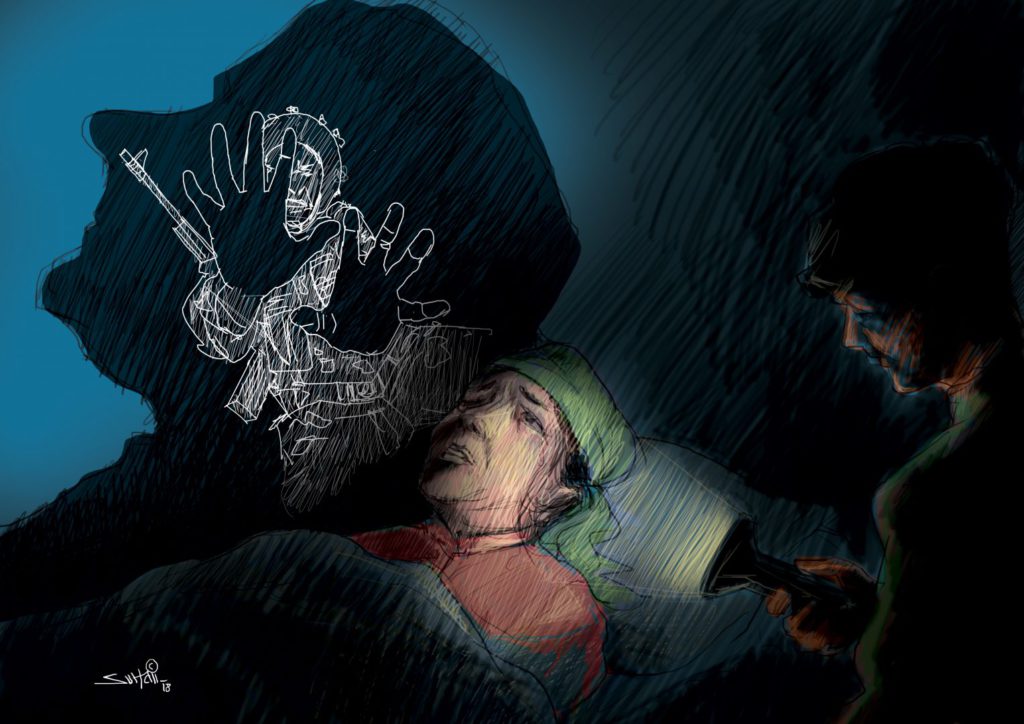

Perhaps the greatest of the tragedies of lives occupied are found in the choices they are forced to make. And the only thing worse? Maybe the end that those choices eventually bring. Even so, just what kind of space is left to navigate in lives occupied? How do the living live their lives? What ways do they traverse, what ends do they meet? Untold are the ways a people occupied remain unfree. In this story, set in India-administered Kashmir, Ashfaq Saraf shines a moment as such—of facing horrors unspoken, and of fathoming ways that must be traversed to give in to them, or to overcome. Ways that crisscross between life and death, home and hearth. Of perhaps the most unlikely of realms to resist within, or in fact the most obvious ones. In the wretchedness of a military occupation, can there still be life?
Illustration by Suhail Naqshbandi WHEN SHE WAKES UP panting in the middle of night he is wakened too, mostly without delay and sometimes only after she heaves Rasheed’s name. He lights the torch, and navigates the glow across the span of the room to locate her trembling face. Then he moves it further to where the emptied glass is kept. Without waiting for her to ask he tiptoes to the kitchen, fills the glass, and returns to the room. She drinks in marked gulps and lays her head back on the pillow. He turns the torch off. They both attempt to go back to sleep. In the morning she wakes him up by shaking his shoulder and hissing into his ear, “Shabeerah… Shabeerah.” Shabeer works as a carpenter patently dedicated to the craft. Unlike him his father, Rasheed, did not think much of carpentry. “I have been the evening host…
Related Posts


Donald Trump’s Master Economic Plan I Opinion by Yanis Varoufakis




